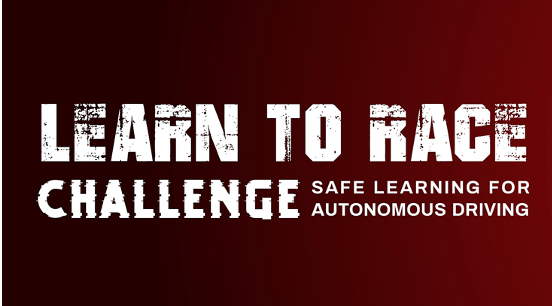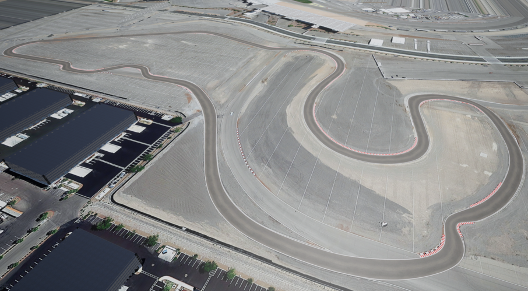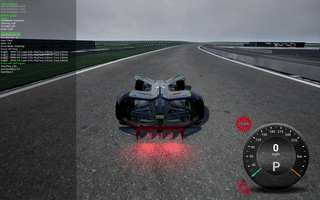About
Welcome to the 2nd IJCAI Workshop on Artificial Intelligence for Autonomous Driving (AI4AD)!
While there have been significant advances in vehicle autonomy (e.g., perception, trajectory forecasting, planning and control, etc.), it is of paramount importance for autonomous systems to adhere to safety specifications, as any safety infraction in urban and highway driving, or high-speed racing could lead to catastrophic failures. Given this inherent tension between safety and performance, we introduce a new simulation environment in autonomous racing as a particularly challenging proving ground for safe learning algorithms.
We envision this workshop bringing together researchers and industry practitioners from different AI subfields to work towards safer and more robust autonomous technology. We encourage participants to take part in the Challenge by competing for top leaderboard positions, to submit articles for review, and to engage with us at IJCAI 2022.
Topics covered
- Safe reinforcement learning, safe exploration, constrained reinforcement learning, safe learning + control theory
- Safety verification, certifying learning-based control under dynamical uncertainty, dependability analysis
- Robustness to out-of-distribution road scenes
- Learning vehicle dynamics at high-speeds and in unstable regimes
- Vision-based perception and scene understanding for autonomous driving
- Representation learning for visuomotor control
- Transfer learning; simulation to real-world; meta-learning; domain adaptation; *-shot learning; self/semi/weakly-supervised learning; multi-task learning
- End-to-end and real-time autonomous driving systems
- Novel automotive sensors and their applications
- Trajectory forecasting; Behavior prediction of pedestrians, vehicles, and animals
- Explainability in autonomous driving
- Learning to drive via imitation learning
- Learning to drive via distribution awareness
- Uncertainty propagation through autonomous driving pipelines
- Classical planning and control for autonomous driving
- Cooperative and competitive multi-agent systems
- Visual grounding and its application to autonomous driving
- Vision-language navigation for autonomous driving
- Audio-visual navigation for autonomous driving
- Neuro-symbolic approaches in autonomous driving; Knowledge representation and reasoning
- Auditory perception (detection, tracking, segmentation, motion estimation, etc)
- Brain-inspired autonomous control systems
- Human factors in autonomous driving
- AI ethics in autonomous driving
- Autonomous driving datasets, simulation, evaluations, and metrics
- Connected autonomous driving, vehicle-to-vehicle, vehicle-to-infrastructure communication, digital twins
- Autonomous driving for traffic management and emission reduction; intelligent transportation systems
Dates
Paper + Presentation Deadlines
Note: all deadlines are in Central European Time (CET), UTC +1, Paris, Brussels, Vienna.
Submissions due:
13 May 2022
20 May 2022
Notification: 3 June 2022
Camera Ready: 17 June 2022
Oral/Poster video upload: 1 July 2022
Workshop Event (IJCAI-ECAI 2022 Workshop #48)
Date: 23 July 2022
Location: “Lehar 3” room of the Messe Wien Exhibition and Congress Center in Vienna, Austria.
Messe Wien
Hall B, entrance Congress Center
Messeplatz 1
A-1020 Vienna
Metro stop U2 “Messe Prater”
Additional venue information: https://ijcai-22.org/venue/
Additional schedule information: https://www.ijcai-22.org/ijcai-2022-schedule/
Workshop Schedule
Saturday, 23 July, 2022. All times are in Central European Time (CET). Current time is .


Max Kumskoy
ARRIVAL
Ivan Zhukov
ARRIVAL
Balint Gyevnar
U Edinburgh
Lachlan Mares
U Adelaide
Soumith Udatha
CMU

Johannes Betz
UPenn
Speakers

Max Kumskoy, Ivan Zhukov
Automated Driving Systems
ARRIVAL

Sahika Genc
Principal Scientist
Amazon AWS

Changliu Liu
Assistant Professor
Carnegie Mellon University

Madhur Behl
Assistant Professor
University of Virginia

Ding Zhao
Assistant Professor
Carnegie Mellon University

Johannes Betz
Postdoctoral Researcher
University of Pennsylvania

Rowan McAllister
Machine Learning Scientist
Toyota Research Institute
Challenge
We also feature an exciting and new AI Challenge in high-speed autonomous racing. Here, the goal is to evaluate the joint safety, performance, and generalisation capabilities of perception and control algorithms, as they operate simulated Formula-style racing vehicles at their physical limits! The Learn-to-Race Autonomous Racing Virtual Challenge is now active. Participate now!
Organisers

Jonathan Francis
Research Scientist at Bosch Research; domain knowledge-enhanced representation learning, applied to robotics and autonomous driving

Xinshuo Weng
Research Scientist at NVIDIA Research; focusing on 3D computer vision and generative models for autonomous systems

Hitesh Arora
Researcher at Amazon, focusing on multimodal perception and reinforcement learning, applied to autonomous driving

Bingqing Chen
Machine Learning Research Scientist at Bosch Research, focusing on constraint-based optimisation, physical mechanisms, and safe learning, applied to autonomous driving

Siddha Ganju
Researcher and Data Scientist at NVIDIA, focusing on computer vision optimization for vehicle autonomy and medical instruments

Manoj Bhat
Machine Learning Researcher at Amazon, focusing on Neural Radiance fields, reinforcement learning, and representation learning applied to autonomous driving

Daniel Omeiza
PhD student at Oxford, focusing on explainable AI and decision-making, in autonomous driving

Jean Oh
Research Professor in Robotics Institute at CMU and Director of Bot Intelligence Group; multimodal perception, navigation, and artificial intelligence

Eric Nyberg
Professor of Computer Science at CMU and Program Director, Masters of Computational Data Science; hybrid reasoning systems and artificial intelligence

Sylvia Herbert
Assistant Professor at UCSD and Director of Safe Autonomous Systems Lab; uncertainty modeling in control, safety-aware learning, autonomy
Program Committee
- Raghuram Annasamy (+ER, TR)
- Johannes Betz (SMR)
- Wenhao Ding
- Nemanja Djuric
- Jaime Fisac (SMR)
- Xiangyu Gao (+ER)
- Shivam Goel
- Sidharth Kathpal
- Anirudh Koul
- Tanmay Kulkarni
- Jingyuan Li
- Ingrid Navarro (TR)
- Aarati Noronha
- Alessandro Oltramari (TR)
- Karthik Paga (ER, TR)
- Ehsan Qasemi (TR)
- João Semedo
- Yash Shukla
- Jayant Tamarapalli
- Gyan Tatiya
- Yujie Wei (+ER)
- Weiran Yao
- Xinjie Yao
- Sahiti Yerramilli
- Ding Zhao (SMR)
ER — Recognises PC member who served (“+” additionally) as an Emergency Reviewer.
TR — Recognises PC member who, according to Chair ratings, ranked in the Top 16% of Reviewers.
SMR — Recognises PC member who agreed to provide their services as a Senior Meta-Reviewer.
Sponsors





